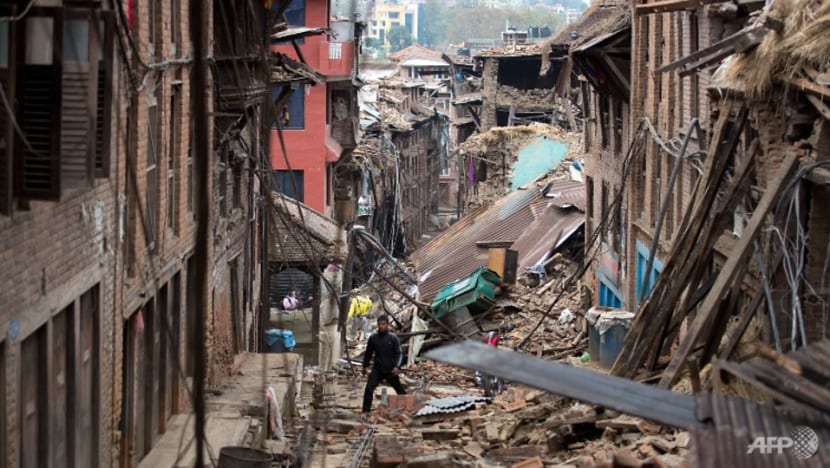Will Nepal be made to pick between US and China in geopolitical dance?
With India also in the mix, the new Nepalese government finds itself trying to balance ties with the three nations and their competing interests.

MANASSAS, Virginia: Nepal is at the centre of a delicate geopolitical balancing act, as the world’s superpowers vie for its attention through major investments in areas such as energy and infrastructure.
The Biden Administration released its Indo-Pacific strategy about a year ago, and continues to deepen security ties with allies like Japan and South Korea, while pursuing closer relations with others, including Nepal.
However, Nepal’s new Prime Minister Pushpa Kamal Dahal, who took office at the end of December last year, is seen by some as being friendly towards Beijing.
With tensions between the US and China showing no signs of abating, and a looming India as its neighbour, the new Nepalese government has to balance its relations with all the countries, each with its own competing interests.
A BALANCING ACT
Prime Minister Dahal is viewed by some in both Washington and Delhi as a pro-China politician.
In the last two months, the US under secretary of state for political affairs Victoria Nuland and United States Agency for International Development administrator Samantha Power, have visited Nepal to step up Washington’s influence there.
They announced new investments, including more than a billion dollars in clean energy and a grant of nearly US$60 million to strengthen civil society in Nepal.
Meanwhile, Beijing increased its foreign direct investments in Nepal by US$115 million last year.
The complex geopolitical situation is made even more challenging with the involvement of its neighbour India.
Mr Sujeev Shakya, chair of the Nepal Economic Forum, a private sector-led think tank in Nepal, said: “While the energy agreements are there between India and Nepal, implementation on the ground has been a challenge because India talks about not allowing Chinese-built power plants to supply energy into India and beyond.”
AID FOR NEPAL
The US provided millions of dollars in humanitarian aid to Nepal following a devastating earthquake in 2015, and is focused on investing in the country in the longer term.
Health Foundation Nepal, a non-profit organisation registered both in the United States and Nepal since 2013, raises funds for mental health programmes in rural Nepal.
The organisation raised US$130,000 for the country after the 2015 earthquake.
Meanwhile, the US$500 million Millennium Challenge Corporation (MCC) is an infrastructure project to develop roads and facilitate cross-border electricity trade between Nepal and India.

It was signed in 2017 and ratified by Nepal last year.
Former World Bank economist Prem Sangraula said it is just one of the programmes the US is conducting in Nepal, and has drawn criticism from China who accused the US of "coercive diplomacy".
The MCC initially faced opposition from current Prime Minister Dahal, who was back then the Chair of the Communist Party of Nepal-Maoist Center, though he later voted for its ratification.
While Washington hopes to compete with Beijing in the region by growing its ties with the Indo-Pacific, Asian countries do not want to be forced to choose sides.
Mr Harry Bhandari, state delegate of Maryland since 2018, was the first lawmaker of Nepali origin to be elected in the US.
“The relationship between Nepal and United States is based on peace, economic prosperity and human rights,” he said, adding that there are benefits to greater alignment with the US.
Much of the Nepalese diaspora in the US still feel a strong connection to their roots, and hope to strengthen those ties by improving health and education opportunities in Nepal, away from the complexities of geopolitics.














